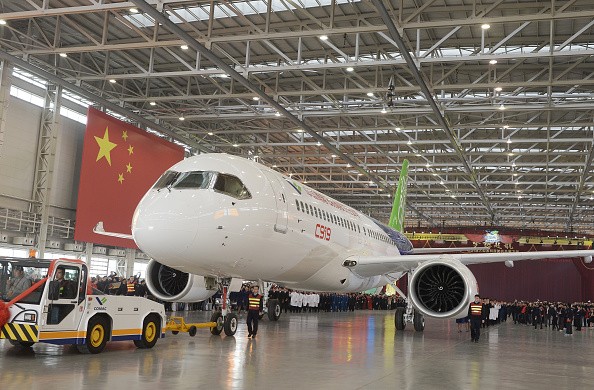China, the United States, and Europe have pledged their support on Saturday for a new deal to cut down carbon dioxide emissions by airlines, which is due to be finalized at a meeting of the U.N.'s International Civil Aviation Organisation (ICAO) in September and slated to go into effect from 2021.
Aviation was excluded from the Paris climate accords in December last year forged a multinational agreement to curb the global average rise in temperatures to "well below" 2 degrees Celsius (3.6 degrees Fahrenheit) above pre-industrial levels.
The proposed new deal, which aims to cap carbon pollution of all international flights at 2020 levels, will be voluntary between 2021 and 2026 and mandatory from 2027 onward for the world's largest contributors of carbon emissions.
Airlines in participating countries would need to limit their emissions or offset them by purchasing carbon credits from designated environment projects around the world.
According to ICAO estimates, carbon offsetting will cost airline operators 0.2-0.6 percent of total revenue from international aviation starting in 2025, and 0.5-1.4 percent from 2035.
"Today, the United States and China are expressing their support for the ICAO Assembly reaching consensus on such a measure," the two countries said in a joint statement on Saturday.
The statement, which was released ahead of the G20 summit in the Chinese coastal city of Hangzhou, said both nations "expect to be early participants in the measure and volunteer to join."
In a separate statement, the European Civil Aviation Conference (ECAC), which counts the EU and 16 other countries as members, said it would participate in the market-based plan from the outset and urged other nations with state-owned airlines to do so.
The inclusion of China, which has traditionally opposed any binding emissions regime for its industries, is considered crucial to the deal, with experts foreseeing it to favor Chinese airlines at least in the initial phase.
"It is not an issue for China to sign up for the ICAO deal, as the mitigation actions are voluntary until 2026," Chai Qimin, a researcher with China's National Center for Climate Change Strategy and International Cooperation (NCSC), told Reuters on in a report posted on Saturday.
Chai said the deal could also benefit China by giving it a lower share of all emissions that must be capped beginning from 2020, but its continued participation would still depend on whether other countries could agree on terms of the deal.
Beijing has expressed concern that attempts to force Chinese airlines to buy carbon credits would violate the "common but differentiated responsibility" principle, which states that developed countries should bear the brunt of cutting emissions.
Negotiations are expected to continue until the ICAO meets on Sept. 27.
"There are a lot of details that will determine the level of ambition," said Li Shuo, climate adviser with Greenpeace.
Although China had been more "progressive" when it came to the Montreal protocol and the phasing out of CFCs, it has been less receptive on aviation, Li said.
Annie Petsonk, a consultant at the Washington D.C.-based Environmental Defense Fund, said 80-90 percent of carbon emissions above 2020 levels would need to be covered by the agreement in order for the civil aviation industry to achieve long-term carbon-neutral growth.
As one of the key players in the global aviation sector, China's participation in the deal's initial voluntary phases from 2021 to 2026 would likely be required to achieve the 80-percent target, according to the non-profit International Council on Clean Transportation.
Council spokesman Dan Rutherford told Reuters that China's absence from the first phases "would definitely be a big hole in the coverage."
On Thursday, the transport head of the European Commission urged countries to join the deal.
"Our aim must be also to try to maximize the coverage and to try to have all the key aviation nations opting in," Director-General Henrik Hololei said during an environment committee hearing.
China previously declined to participate in an EU campaign to compel international airlines to buy carbon credits from its emissions trading scheme to cover flights into European airports, forcing the EU to suspend the plan.
European lawmakers also remain skeptical of the draft ICAO resolution, arguing that it fails to meet EU expectations.
Several members of the EU parliament said the draft is not enough to justify extending the exemption for international flights from the EU's own aviation emissions trading scheme beyond 2016.
The EU is expected to make a decision whether to continue its exemption of international flights by the end of the year.
China's Civil Aviation Administration declined Reuter's requests for comment.
Chai Haibo, vice-general-secretary of the China Air Transport Industry Association, said the industry would support any government decision regarding the deal.
"Multinational negotiations under a government framework are more favorable, and we hope it will result in an acceptable deal to all parties," he said.



























